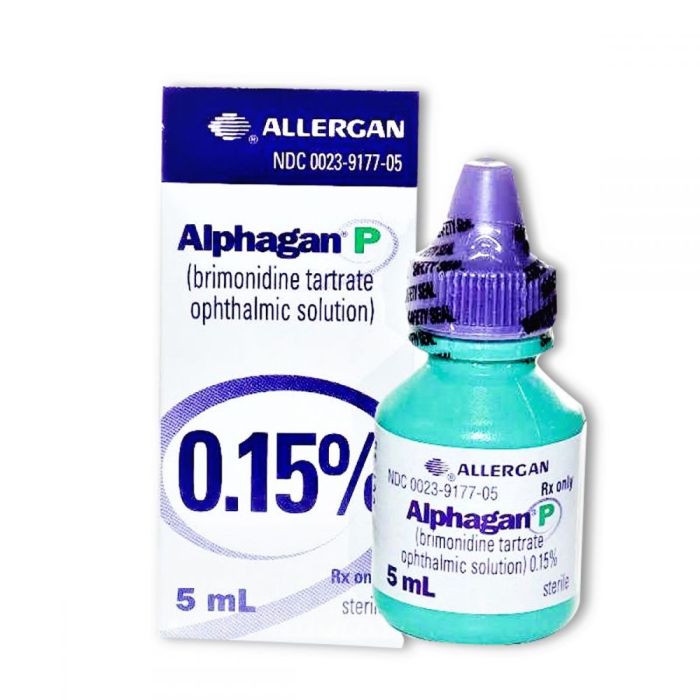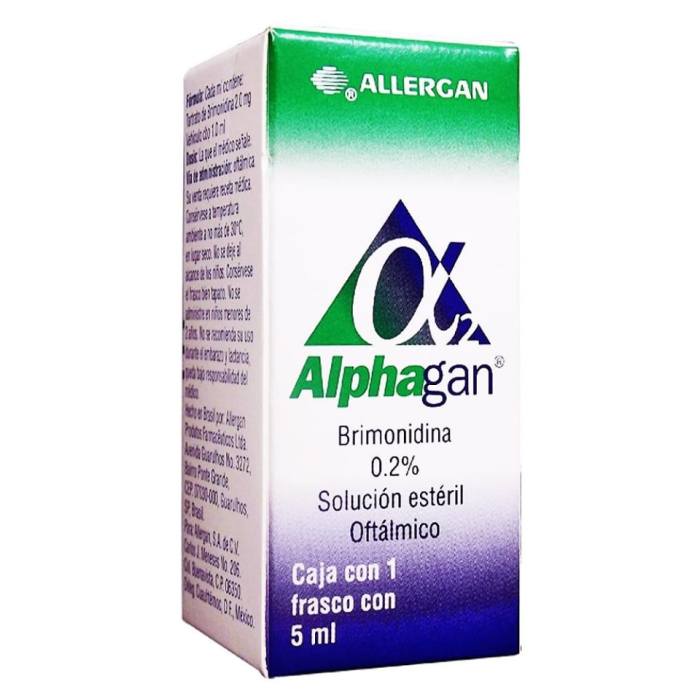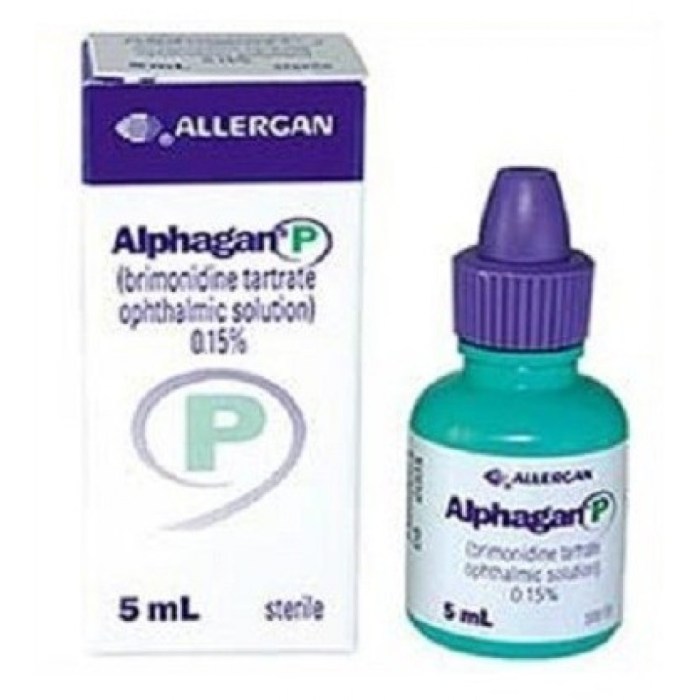Alphagan, a medication commonly prescribed for managing intraocular pressure, is a potent tool in the fight against glaucoma and other ocular conditions. This eye drop, containing the active ingredient brimonidine tartrate, works by constricting blood vessels in the eye, ultimately reducing the amount of fluid produced and lowering pressure within the eye.
The effectiveness of Alphagan stems from its ability to selectively target alpha-2 adrenergic receptors, located in the eye’s ciliary body, which are responsible for regulating aqueous humor production. By binding to these receptors, Alphagan triggers a cascade of events that ultimately leads to a reduction in fluid production, easing the strain on the optic nerve.
Alphagan and Pregnancy

Alphagan (brimonidine tartrate) is a medication used to treat glaucoma, a condition that damages the optic nerve. While it is generally effective in managing glaucoma, its use during pregnancy requires careful consideration due to potential risks to the developing fetus.
Safety of Alphagan Use During Pregnancy
The safety of Alphagan use during pregnancy has not been fully established. Studies in animals have shown that brimonidine can cross the placenta and reach the fetus. However, there are limited human studies to determine the potential effects of Alphagan on the developing fetus.
Potential Risks and Benefits of Using Alphagan During Pregnancy
The potential risks of using Alphagan during pregnancy include:
* Birth defects: While no specific birth defects have been linked to Alphagan, the potential for adverse effects on the developing fetus cannot be ruled out.
* Premature birth: There is a theoretical risk of premature birth, although this has not been directly linked to Alphagan use.
* Low birth weight: There is a theoretical risk of low birth weight, although this has not been directly linked to Alphagan use.
The potential benefits of using Alphagan during pregnancy include:
* Controlling glaucoma: Alphagan can help control glaucoma, which can prevent vision loss.
* Preventing complications: Controlling glaucoma can help prevent complications such as blindness.
The decision to use Alphagan during pregnancy should be made on a case-by-case basis, considering the individual patient’s circumstances and the potential risks and benefits.
Alternative Treatment Options During Pregnancy
There are alternative treatment options for glaucoma during pregnancy, including:
* Eyedrops: Other types of eyedrops, such as beta-blockers, may be considered as safer alternatives to Alphagan.
* Laser surgery: Laser surgery can be used to treat glaucoma, but it may not be suitable for all patients.
* Observation: In some cases, it may be possible to monitor glaucoma without treatment during pregnancy.
It is important to discuss all treatment options with a healthcare professional to determine the best course of action for each individual patient.
Alphagan and Breastfeeding

Alphagan (brimonidine tartrate) is a medication used to treat glaucoma, a condition that damages the optic nerve and can lead to blindness. While Alphagan is generally safe and effective, it’s crucial to consider its potential effects on breastfeeding mothers and their infants.
Safety of Alphagan Use During Breastfeeding
Alphagan is absorbed into breast milk in small amounts. The amount of Alphagan that passes into breast milk is typically too low to cause any significant harm to a nursing infant. However, it’s essential to weigh the potential risks and benefits of using Alphagan during breastfeeding.
Potential Risks and Benefits of Using Alphagan During Breastfeeding
- Potential Risks: While the amount of Alphagan in breast milk is usually small, there is a theoretical risk that it could affect the infant’s development or cause side effects such as drowsiness, sleepiness, or low blood pressure. However, these risks are considered minimal.
- Potential Benefits: Alphagan can effectively control glaucoma, which can help protect the mother’s vision and overall health. Maintaining good vision is crucial for mothers, especially during breastfeeding, as it allows them to care for their infants safely and effectively.
Alternative Treatment Options During Breastfeeding
If a breastfeeding mother is concerned about the potential risks of Alphagan, there are alternative treatment options available for glaucoma. These may include:
- Other eye drops: Several other eye drops are used to treat glaucoma, some of which may be considered safer for breastfeeding mothers.
- Laser surgery: In some cases, laser surgery can be used to treat glaucoma.
It’s important to discuss the potential risks and benefits of all treatment options with a healthcare professional to determine the best course of action for the individual mother and her infant.
Long-Term Use of Alphagan

Alphagan, like many medications, is designed for short-term use to treat specific conditions. While it is generally safe for short-term use, long-term use may raise concerns about potential side effects and the need for ongoing monitoring. This section will delve into the potential long-term effects of Alphagan use, the importance of regular eye examinations during therapy, and how to manage any long-term side effects.
Regular Eye Examinations During Alphagan Therapy
Regular eye examinations are crucial during Alphagan therapy, especially for long-term use. These examinations help monitor the effectiveness of the medication, detect any potential side effects, and ensure the overall health of your eyes.
- Early detection of side effects: Regular eye exams can help identify any potential side effects, such as changes in vision, eye irritation, or other complications, allowing for timely intervention and management.
- Monitoring effectiveness: Eye examinations allow your doctor to assess how well Alphagan is working for you and if any adjustments to your treatment plan are needed.
- Overall eye health: Routine eye exams are essential for maintaining good eye health, regardless of medication use. They help detect other eye conditions that may not be related to Alphagan but could require treatment.
Managing Long-Term Side Effects
While Alphagan is generally safe, some individuals may experience long-term side effects, which can vary in severity and type. These side effects may be manageable with adjustments to treatment or lifestyle changes.
- Communication with your doctor: It is essential to discuss any concerns or side effects with your doctor. They can help determine the cause of the side effect and recommend appropriate management strategies.
- Lifestyle modifications: In some cases, lifestyle modifications, such as adjusting your daily routine or reducing exposure to irritants, can help manage long-term side effects.
- Alternative treatments: If side effects become problematic, your doctor may consider alternative treatments or a different medication to manage your condition.
Understanding the mechanism of action, therapeutic applications, and potential side effects of Alphagan empowers individuals to make informed decisions about their eye health. While Alphagan offers a valuable treatment option for managing intraocular pressure, it’s crucial to consult with a healthcare professional to determine if it’s the right choice for your specific needs and to ensure safe and effective use.
Alphagan, a medication used to treat glaucoma, helps lower eye pressure by improving drainage. While effective, it’s important to be aware of potential side effects, just as you would with any medication. For example, memantine, a medication used to treat Alzheimer’s disease, can have side effects like dizziness, headache, and constipation. Learn more about memantine side effects here.
Returning to Alphagan, it’s crucial to discuss any concerns or potential side effects with your doctor to ensure the best possible treatment plan.